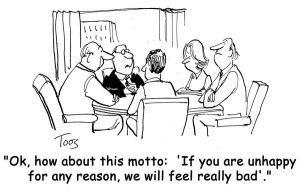
Customer service in Chile is not very different from most other nations with well-established service industries, and neither are the tipping procedures. A standard tip in Chile is 10% of the bill, particularly when dining. Restaurants are increasingly adding the propina to the foot of the bill, and the customer still has the option to choose whether they would like to pay that cost. However, it is heavily frowned upon to not tip in restaurants.
Tipping taxi drivers is trickier. It is common for taxi drivers to round their fee up or down to the nearest hundred pesos. Tips are in no way obligatory, but they are accepted graciously. Many customers who have the money to spare round up to the nearest thousand pesos, or else just throw in a couple hundred extra pesos in coins. It is normal to give a small tip, up to 10%, if a taxi driver provides any additional service, such as helping with luggage or providing significant help with directions.
Trips to salons are a popular treat for visitors to Chile because they provide quality services at a very inexpensive rate. Tips are generally not present, or else rounded up as is the case with taxi drivers. Artists, from street fairs to tattoo parlors, tend to prefer to be tipped as well, although they will often refuse tips. This area has perhaps the most variance. As a rule of thumb, it is better to offer a 10% tip and be rebuffed rather than to not tip at all.
There are several other situations in which a tip is expected. At grocery stores, the clerk who bags your groceries is usually offered a few hundred pesos. On city buses, performance artists often board and play a song or act out a comedy routine. Tip a few hundred pesos when this happens, if you have it handy.
 Customer service is often found to be on the slow side in Santiago, but with a little understanding, it is an effective system. An important fact to take into consideration is that in Chile, hourly pay is not common. Most service industry workers are paid weekly or monthly. This may cause a decreased incentive for management to pressure floor staff to work quickly and efficiently. With a little open-mindedness and patience, customer service can be just as attentive as certain foreigners are used to. Mistakes are rarely made. It is not uncommon for servers and bellhops to go beyond their requirement to help out. Retail locations employ plenty of floor staff prepared to answer questions, and as the tourism industry grows in Chile, many more workers are learning English to help them with their trade. Organized queues are also common in certain industries, such as in pharmacies- just take a number, and wait your turn.
Customer service is often found to be on the slow side in Santiago, but with a little understanding, it is an effective system. An important fact to take into consideration is that in Chile, hourly pay is not common. Most service industry workers are paid weekly or monthly. This may cause a decreased incentive for management to pressure floor staff to work quickly and efficiently. With a little open-mindedness and patience, customer service can be just as attentive as certain foreigners are used to. Mistakes are rarely made. It is not uncommon for servers and bellhops to go beyond their requirement to help out. Retail locations employ plenty of floor staff prepared to answer questions, and as the tourism industry grows in Chile, many more workers are learning English to help them with their trade. Organized queues are also common in certain industries, such as in pharmacies- just take a number, and wait your turn.
Be polite, be patient, and when in doubt, offer a tip- or perhaps offer to cover the tip if a local is treating you to a meal or the like. Follow these three standards, and Chilean customer service and tipping is easy enough to understand.
